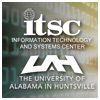A Semantic Approach for Knowledge Discovery to Help Mitigate Habitat Loss in the Gulf of Mexico
| Title | A Semantic Approach for Knowledge Discovery to Help Mitigate Habitat Loss in the Gulf of Mexico |
| Publication Type | Conference Paper |
| Year of Publication | 2008 |
| Authors | Maskey, M, Hardin, D, Ramachandran, R, Graves, S |
| Conference Name | American Geophysical Union (AGU) Fall meeting |
| Date Published | 15/12/2008 |
| Conference Location | San Francisco, CA |
| Abstract | Noesis is a meta-search engine and a resource aggregator that uses domain ontologies to provide scoped search capabilities. Ontologies enable Noesis to help users refine their searches for information on the open web and in hidden web locations such as data catalogues with standardized, but discipline specific vocabularies. Through its ontologies Noesis provides a guided refinement of search queries which produces complete and accurate searches while reducing the user’s burden to experiment with different search strings. All search results are organized by categories (e. g. all results from Google are grouped together) which may be selected or omitted according to the desire of the user. During the past two years ontologies were developed for sea grasses in the Gulf of Mexico and were used to support a habitat restoration demonstration project. Currently these ontologies are being augmented to address the special characteristics of mangroves. These new ontologies will extend the demonstration project to broader regions of the Gulf including protected mangrove locations in coastal Mexico. Noesis contributes to the decision making process by producing a comprehensive list of relevant resources based on the semantic information contained in the ontologies. Ontologies are organized in a tree like taxonomies, where the child nodes represent the Specializations and the parent nodes represent the Generalizations of a node or concept. Specializations can be used to provide more detailed search, while generalizations are used to make the search broader. Ontologies are also used to link two syntactically different terms to one semantic concept (synonyms). Appending a synonym to the query expands the search, thus providing better search coverage. Every concept has a set of properties that are neither in the same inheritance hierarchy (Specializations / Generalizations) nor equivalent (synonyms). These are called Related Concepts and they are captured in the ontology through property relationships. By using Related Concepts users can search for resources with respect to a particular property. Noesis automatically generates searches that include all of these capabilities, removing the burden from the user and producing broader and more accurate search results. This presentation will demonstrate the features of Noesis and describe its application to habitat studies in the Gulf of Mexico. |
Involved Persons:
- Log in to post comments
- Google Scholar




